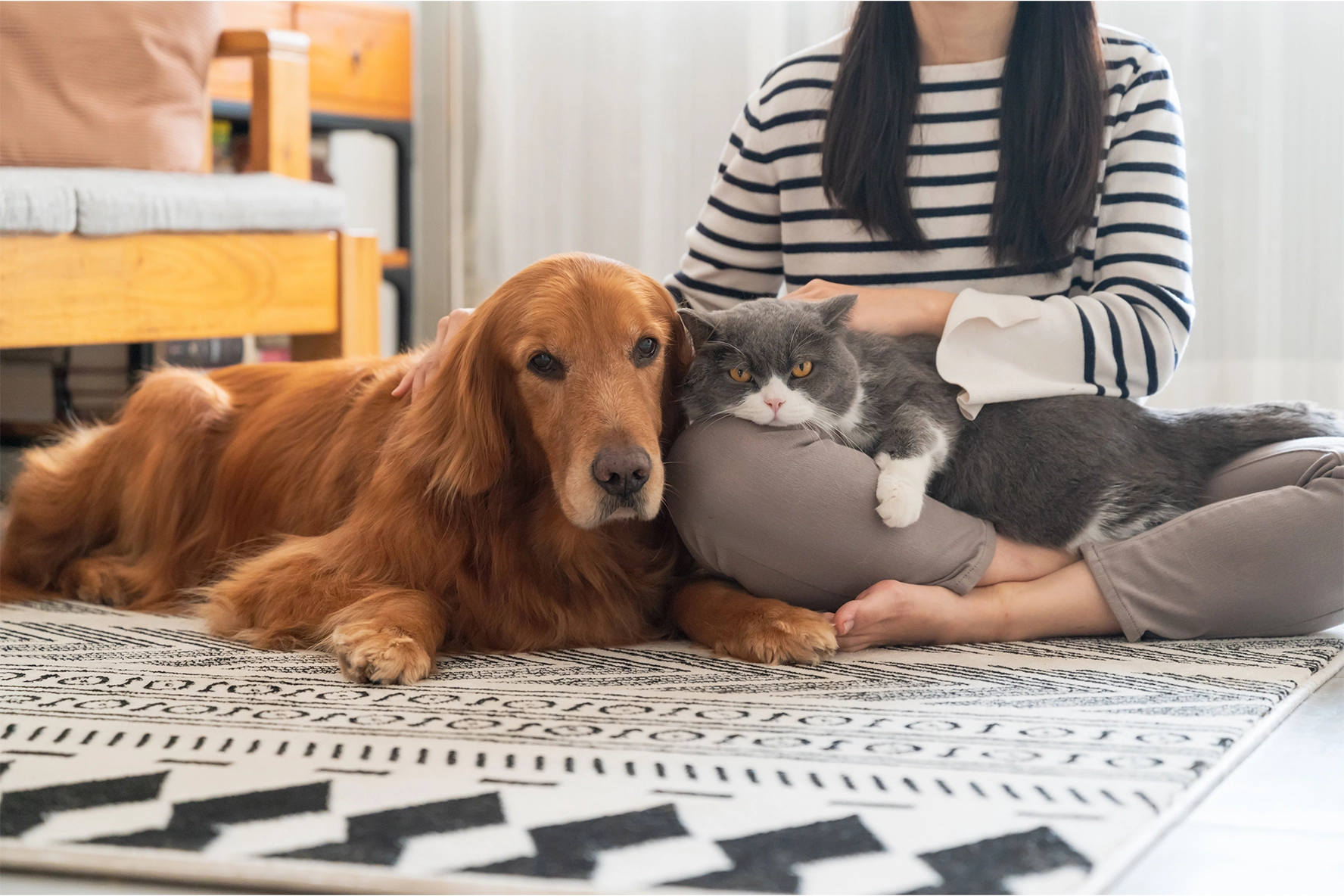
When your primary vet tells you something is wrong and you need to see an oncology specialist to be able to help your pet, it can feel like a kick in the teeth. It’s the kind of situation that most pet parents don’t plan for. How do you find the right veterinary oncologist when you have a ticking clock on your pet’s health? Is it as simple as searching “Pet oncologists near me”?
It’s a daunting task in the heat of the moment, but we want to break it down for you so it doesn’t feel so scary.
How to know you’re on the right track with finding a pet cancer specialist
The moment that you find out you need a specialist to be able to help your pet heal is a hard one to move through. That’s something that your primary vet will understand when they tell you what they found.
Your first step will likely be to follow your primary vet’s recommendations and go to the oncologist that they recommend. Anyone that they recommend to you will be a specialist that they trust, and have likely worked with in the past. Any oncologist that is referred by your primary vet will have been evaluated by your primary vet prior to their recommendation and will have all of the required certifications.1
As with anything, there are pros and cons to going with the first option presented to you.
The referral may present an easy solution to an unexpected problem. Knowing where you’d take your pet when diagnosed with cancer isn’t one of the primary focuses for pet parents, and when the decision needs to be made, it’s typically at a highly emotional time. The time and effort it may take to find another option for your pet’s oncology needs may not be worth it to you in the long run.
However, there is still the chance that the oncologist your vet referred you to may not be the right fit for you and your pet. The oncologist’s office may be in a difficult location for you to travel to, or the clinic hours directly conflict with your work schedule, or perhaps you can’t comfortably afford their treatment prices. It could even be as simple as your pet doesn’t feel comfortable in the office. There are a myriad of reasons why an option might not work for you, regardless of how well-recommended and trustworthy that oncologist might be.
So while the referral may be your easiest option, knowing how you can find the best option can still be beneficial.
What to look for in the right veterinary oncologist for your dog or cat
Finding the right oncologist for you and your pet’s needs can take some work, but it will be worth it in the long run both for your comfort and your pet’s. When you work with an oncologist who is not quite the right fit for your situation it can cause extra stress or worry over the already taxing process.
Where to start when you want to find an oncologist on your own:
Cancer treatments can cost a lot, both financially and of your time and energy. You need to know what you value most through the process and what you’d be willing to sacrifice on. One of the best places to set boundaries for your potential oncologist is your treatment budget.
“Pet oncologists near me” in the search bar is only the first step.
After that initial search a good next step is asking yourself: how much time are you willing to spend traveling to get your pet’s treatment and tests done? If you value your travel time over the monetary value of a treatment this will widen your options. If you don’t mind traveling as long as you are able to get a budget-friendly treatment option then you’ll also have more options. If you don’t want to travel for treatment and want to pay within a certain budget then expect your number of options to be a bit more limited.
After you decide your range for treatment locations, you can take a little bit of time—maybe half an hour to an hour—to make some calls to potential oncology offices. It can be hard to get a straight answer on potential cost through the internet due to the wide range of influences on cancer treatment pricing. The cost of treatment varies greatly around the country so what one treatment may cost in Los Angeles may be very different from what the same treatment would cost in Salt Lake City. By calling the offices in your area you have the opportunity to ask for a range of costs pertaining to your dog’s particular cancer.
Finding out the average cost locally of the treatment your pet needs can give you a baseline for how much you feel comfortable spending and where your budget lays for your pet.
These two tasks give you a guideline for your needs, which creates a streamlined system to find the best oncologist for your pet.
What is your next step to the best dog or cat cancer specialist?
After you’ve established your boundaries for where you are willing to travel and how much you are willing to pay, now it’s time to find a few oncologists that fit.
The best place to find certified veterinary oncologists without the help of your primary vet is through the Veterinary Cancer Society’s website. This is an inclusive database of all certified veterinary oncologists, of every degree classification. You can look up all of the oncologists in your state and look through their information for the ones closest to you. After that, just a quick Google search and you can find the vets’ websites.2
You then have the chance to explore. Look through their websites, see what their values are, and look at pictures of the locations. If there is an oncologist that stands out to you, give them a call, ask them about pricing and scheduling, and any other questions you may have. Be sure to ask them what their wait is for an appointment. Unfortunately, right now it can be difficult to fit into an oncologist’s schedule, and wait times can be anywhere from 5-15 business days. If an oncologist that stands out to you doesn’t have an appointment until the next month, it’s probably best to keep looking.
It’s important that your oncologist makes you feel heard and cared for. You and your pet are going through a tough time and are coming to them in need. If they don’t have a personality that you feel comfortable with, then they may not be the best fit for you.
If you have a dog that has been diagnosed with lymphoma, it would be beneficial for you to take a look at ImpriMed’s list of partnered oncologists for one in your area. Using ImpriMed’s service will take out the trial and error that comes with a traditional lymphoma treatment plan by using state-of-the-art labs and artificial intelligence to find the most effective treatment for your pet’s cancer the first time.
Visit the oncologists’ offices that you feel would be the best fit for you
Bring your pet along with you when you visit the offices that stand out. Have them meet the staff and the vets and see if they feel comfortable while they’re inside. The possibility that your pet will be uncomfortable in all of the offices is always there—some animals just don’t feel happy in vet offices—if yours is one of them, pay attention to the office that they seem the least stressed in.
You should be confident that the oncologist and their team will communicate with you in a way that allows you to feel respected and heard, and that your pet won’t be overtaxed having to visit this office as regularly as they will need for their treatment plan.
Once both you and your pet are comfortable, you have found your oncologist.
Don’t be afraid to ask questions
The fastest way to find out what you need to know about an office is to ask questions. Having a pet diagnosed with cancer is not an easy experience to go through. You will need to find someone who is compassionate and understanding to your situation. Asking questions is the fastest way to get answers, as well as get a read on the office you are talking to.
And there is no such thing as a dumb question. Cancer is complicated. While your oncologist is around it all the time, they know you don’t have the same level of background knowledge and will expect that you might have many questions.


